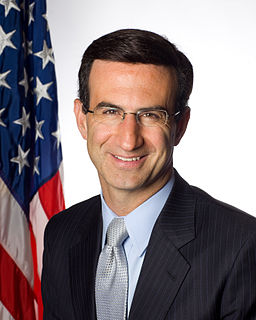A Quote by Bill Frist
Social Security, a critically important, great program which does serve as the cornerstone of support for senior citizens, now faces challenges that threaten its long-term stability and well-being. The facts are there. The facts are crystal clear.
Related Quotes
[The scientist] believes passionately in facts, in measured facts. He believes there are no bad facts, that all facts are good facts, though they may be facts about bad things, and his intellectual satisfaction can come only from the acquisition of accurately known facts, from their organization into a body of knowledge, in which the inter-relationship of the measured facts is the dominant consideration.
Turkey is an important strategic partner facing a volatile period. It needs and deserves our support, but that support needs to include our critique where Turkish policy is not in its own, or our, joint long-term interests: these are regional security and stability as well as strong and accountable institutions in Turkey.
I have great hope and faith, but it's a humanistic faith based in facts; you have to believe that facts exist. We can all arrive at the same facts if we engage in the process of experimentation, observation, and verification, which can solve more of the world's major problems than a debate over whether God does or doesn't exist.
Many, and I think the determining, constitutive facts remain outside the reach of the operational concept. And by virtue of this limitation this methodological injunction against transitive concepts which might show the facts in their true light and call them by their true name the descriptive analysis of the facts blocks the apprehension of facts and becomes an element of the ideology that sustains the facts. Proclaiming the existing social reality as its own norm, this sociology fortifies in the individuals the "faithless faith" in the reality whose victims they are.
































